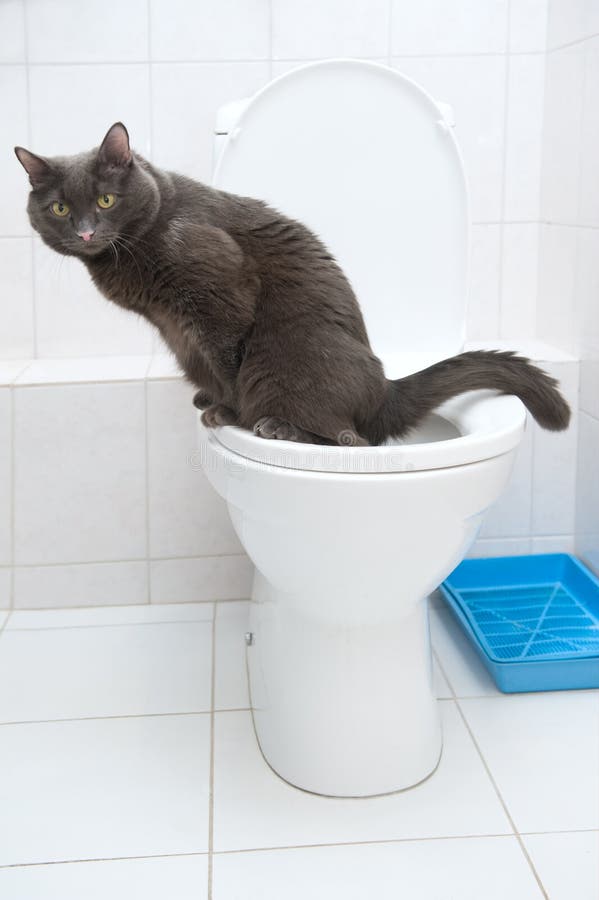The Consequences of Flushing Cat Poop Down Your Toilet - Protect Your Pipes
The Consequences of Flushing Cat Poop Down Your Toilet - Protect Your Pipes
Blog Article
Everyone will have their unique assumption on the subject of Don’t flush cat feces down the toilet.

Introduction
As feline proprietors, it's essential to bear in mind exactly how we get rid of our feline pals' waste. While it may seem convenient to purge pet cat poop down the bathroom, this method can have detrimental repercussions for both the atmosphere and human wellness.
Alternatives to Flushing
The good news is, there are safer and extra responsible ways to throw away pet cat poop. Take into consideration the complying with options:
1. Scoop and Dispose in Trash
One of the most common approach of throwing away feline poop is to scoop it right into a biodegradable bag and toss it in the trash. Make certain to use a devoted clutter inside story and get rid of the waste without delay.
2. Usage Biodegradable Litter
Opt for naturally degradable cat clutter made from products such as corn or wheat. These clutters are eco-friendly and can be safely disposed of in the garbage.
3. Bury in the Yard
If you have a backyard, consider hiding cat waste in a designated location far from vegetable yards and water resources. Make certain to dig deep sufficient to stop contamination of groundwater.
4. Install a Pet Waste Disposal System
Invest in an animal garbage disposal system especially created for feline waste. These systems use enzymes to break down the waste, decreasing smell and environmental effect.
Health and wellness Risks
In addition to ecological problems, purging cat waste can additionally position health threats to humans. Pet cat feces might include Toxoplasma gondii, a bloodsucker that can create toxoplasmosis-- a possibly extreme disease, specifically for expectant ladies and people with weakened body immune systems.
Environmental Impact
Flushing feline poop introduces hazardous microorganisms and bloodsuckers right into the water, positioning a substantial risk to marine ecological communities. These pollutants can negatively affect aquatic life and compromise water quality.
Final thought
Liable pet ownership prolongs past giving food and shelter-- it also involves correct waste management. By avoiding flushing cat poop down the toilet and selecting alternate disposal approaches, we can lessen our ecological footprint and safeguard human wellness.
Why Can’t I Flush Cat Poop?
It Spreads a Parasite
Cats are frequently infected with a parasite called toxoplasma gondii. The parasite causes an infection called toxoplasmosis. It is usually harmless to cats. The parasite only uses cat poop as a host for its eggs. Otherwise, the cat’s immune system usually keeps the infection at low enough levels to maintain its own health. But it does not stop the develop of eggs. These eggs are tiny and surprisingly tough. They may survive for a year before they begin to grow. But that’s the problem.
Our wastewater system is not designed to deal with toxoplasmosis eggs. Instead, most eggs will flush from your toilet into sewers and wastewater management plants. After the sewage is treated for many other harmful things in it, it is typically released into local rivers, lakes, or oceans. Here, the toxoplasmosis eggs can find new hosts, including starfish, crabs, otters, and many other wildlife. For many, this is a significant risk to their health. Toxoplasmosis can also end up infecting water sources that are important for agriculture, which means our deer, pigs, and sheep can get infected too.
Is There Risk to Humans?
There can be a risk to human life from flushing cat poop down the toilet. If you do so, the parasites from your cat’s poop can end up in shellfish, game animals, or livestock. If this meat is then served raw or undercooked, the people who eat it can get sick.
In fact, according to the CDC, 40 million people in the United States are infected with toxoplasma gondii. They get it from exposure to infected seafood, or from some kind of cat poop contamination, like drinking from a stream that is contaminated or touching anything that has come into contact with cat poop. That includes just cleaning a cat litter box.
Most people who get infected with these parasites will not develop any symptoms. However, for pregnant women or for those with compromised immune systems, the parasite can cause severe health problems.
How to Handle Cat Poop
The best way to handle cat poop is actually to clean the box more often. The eggs that the parasite sheds will not become active until one to five days after the cat poops. That means that if you clean daily, you’re much less likely to come into direct contact with infectious eggs.
That said, always dispose of cat poop in the garbage and not down the toilet. Wash your hands before and after you clean the litter box, and bring the bag of poop right outside to your garbage bins.
https://trenchlesssolutionsusa.com/why-cant-i-flush-cat-poop/

I recently found that review on Don’t flush cat feces down the toilet when surfing the search engines. So long as you liked our page kindly do not forget to share it. Thanks for going through it.
Call Today Report this page